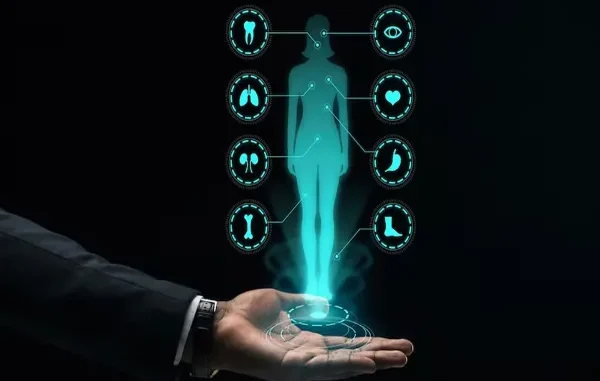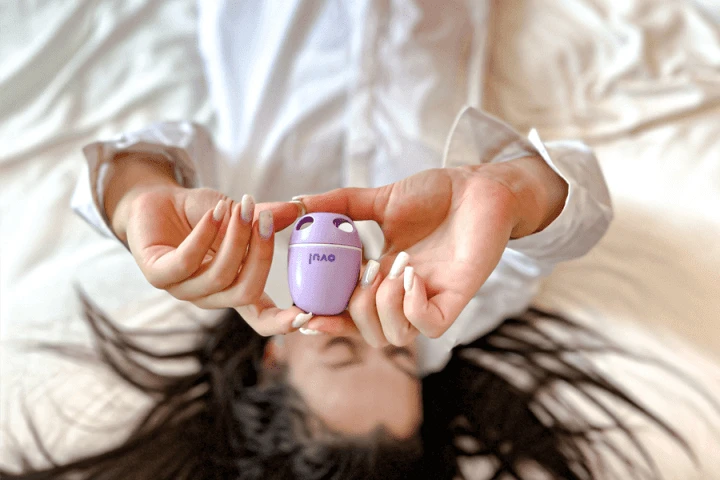
Artificial Intelligence (AI) is reshaping the future of healthcare by imitating the human brain’s cognitive processes — data interpretation, reasoning, and critical thinking. Complex AI models have the potential to transform patient management by making medical processes faster, more accurate, and more efficient, all while reducing the burden on human resources.
While AI has already made significant progress in specialties like radiology, cardiology, and oncology, AI in women’s healthcare remains in the early stages of development. This field holds immense promise, especially considering the unique challenges of gynecology and reproductive medicine, where diagnosis and treatment often depend on subtle biological variations and cyclical hormonal changes.
For those seeking even greater precision in tracking ovulation and fertility, explore the digital ovulation test from OVUL — a next-generation solution that merges clinical-grade accuracy with intelligent design.
The Challenges in Traditional Women’s Healthcare
In gynecology and reproductive health, clinical imaging and laboratory diagnostics play a crucial role in assessing hormonal function, fertility, and menstrual disorders. However, these methods face several limitations:
- Clinician workload: Manual data interpretation requires time and is prone to fatigue-related errors.
- Human variability: Different specialists may interpret the same results differently.
- Reactive approach: Traditional medicine often focuses on treating symptoms rather than predicting and preventing disorders.
Here, AI in women’s health offers a game-changing advantage — the ability to analyze massive volumes of physiological data with speed, consistency, and predictive accuracy far beyond human capacity.
Ovul AI: The Future of Personalized Hormonal Health
At the forefront of this transformation stands OVUL — an AI-powered fertility monitor and hormone tracker device that redefines how women understand and manage their hormonal health.
Unlike traditional testing methods that rely on blood or urine samples, Ovul analyzes hormones non-invasively through saliva, detecting patterns of estrogen fluctuations that correspond with fertility, mood, and energy changes.
Using advanced computer vision and machine learning, the device identifies microscopic “ferning” patterns — crystal structures that form in saliva under certain estrogen levels. These subtle biological markers, invisible to the naked eye, are recognized by Ovul’s neural network with remarkable precision.
How It Works:
- The user places a drop of saliva on a reusable lens.
- The AI algorithm scans and interprets hormonal biomarkers in seconds.
- The app provides real-time insights into the user’s fertility status, hormonal trends, and wellness recommendations.
This fusion of biotechnology and artificial intelligence empowers women to track their cycles daily — gaining insights that were once possible only through costly lab tests.
The Role of AI in Predictive and Preventive Women’s Healthcare
AI in women’s healthcare goes far beyond tracking fertility. Ovul’s approach represents a larger shift toward preventive, data-driven medicine.
By continuously analyzing personalized hormonal data, AI can help predict irregularities such as:
- Anovulatory cycles
- Hormonal imbalances
- Stress-induced cycle disruptions
- Potential endocrine disorders
Such early detection supports timely clinical consultation and personalized lifestyle adjustments — reducing the risk of reproductive and metabolic complications.
Moreover, as datasets grow, AI models like Ovul’s can identify population-level trends, advancing research in gynecology and hormonal health while protecting individual privacy through secure anonymized data handling.
Empowering Females in Healthcare
Beyond diagnostics, Ovul represents a symbolic and practical breakthrough for females in healthcare — both as users and innovators. The technology not only empowers women to take control of their bodies but also contributes to the growing representation of women-led innovation in health tech and femtech sectors.
This is crucial, as women’s health has historically been underrepresented in clinical research and digital innovation. AI-driven solutions like Ovul help close that gap by centering female biology in scientific and technological progress.
The Broader Vision: AI in Women’s Health Revolution
As AI in healthcare becomes more sophisticated, its integration into women’s health is expected to:
- Improve diagnostic precision and predictive modeling.
- Personalize treatment strategies based on hormonal and genetic data.
- Enhance fertility planning and reproductive health monitoring.
- Optimize clinical workflows and reduce costs for both patients and providers.
The next decade will likely see AI-driven tools becoming standard in gynecological care — transforming how both clinicians and patients interact with health data.
Conclusion
Artificial intelligence is not just a technological evolution; it’s a paradigm shift toward smarter, more inclusive, and patient-centered healthcare.
Ovul AI demonstrates how innovation can bridge the gap between medical science and everyday wellness — giving women the power to understand their hormonal health with unprecedented accuracy and autonomy.
As AI in women’s health continues to evolve, the collaboration between science, technology, and empathy will redefine what it means to be healthy, informed, and empowered.
Leave a Reply